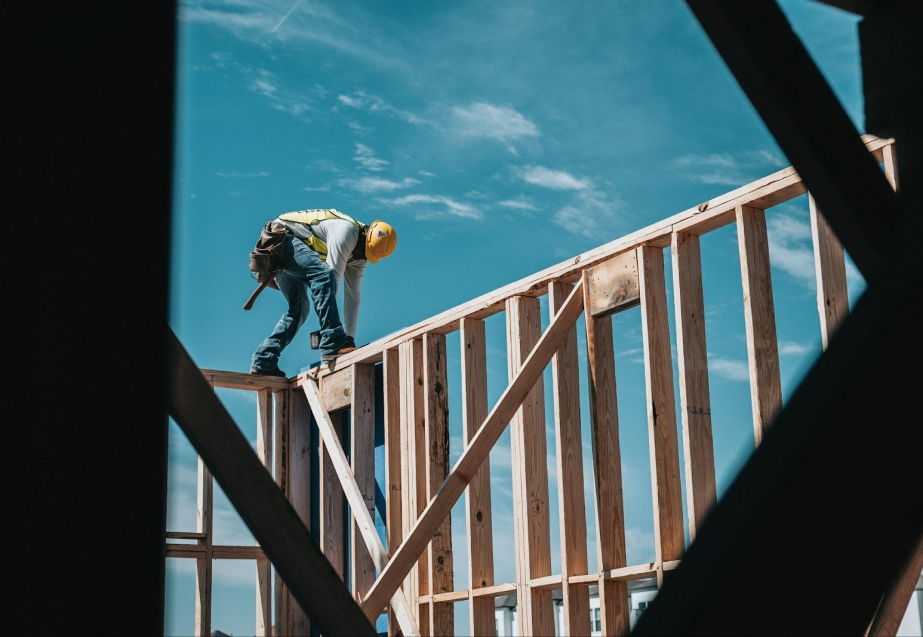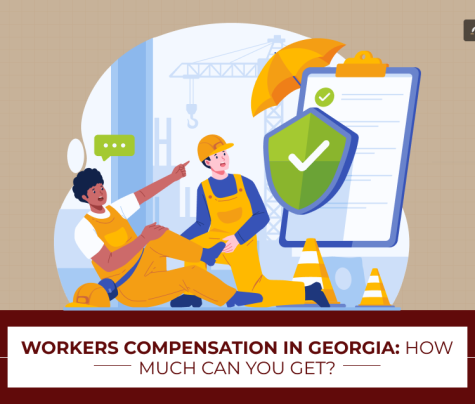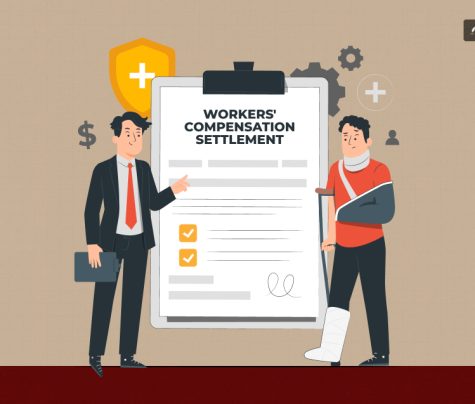
Filing for a worker’s compensation is insufficient in an accident. What you need to understand is how the construction accident law works!
Construction work can be physically demanding and potentially dangerous. As a construction worker in Long Island, knowing accident laws to protect your rights and ensure your well-being is crucial.
In this blog, I aim to provide essential information about accident laws that every construction worker should know.
By familiarizing yourself with these laws, you can navigate the legal process more effectively. Additionally, you can seek the compensation you deserve in case of an accident.
Understanding Construction Accident Law
Construction accident law covers more than just worker’s compensation. While worker’s comp provides financial benefits to workers injured on the job, construction accident law extends into many other areas, offering broader protections and avenues for compensation.
This area of law ensures that injured workers—and sometimes their families—receive the help they need after an accident. Let’s explain what construction accident law involves and why it’s important.
Construction sites are full of potential hazards, from heavy machinery to exposed electrical wiring. Even with strict safety standards, accidents happen, and they can be severe. Injuries might range from broken bones and head trauma to permanent disabilities.
Worker’s compensation typically covers medical expenses and a portion of lost wages, but it doesn’t always account for all the costs—especially if the injury is serious. Here, construction accident law plays a vital role.
Construction accident law allows injured workers to explore other claims, such as third-party claims.
For example, if a piece of defective equipment caused the injury, the worker might file a lawsuit against the manufacturer. If a subcontractor’s negligence led to the accident, a claim could be made against that party.
These claims can offer additional compensation, covering more extensive medical bills, full lost wages, and even pain and suffering.
Additionally, construction accident law includes wrongful death claims, which provide compensation for families who have lost a loved one due to a fatal workplace accident. These claims may cover funeral expenses, loss of income, and emotional damages.
Overall, construction accident law addresses gaps that worker’s compensation might not fully cover. By understanding your rights and options, you can ensure you’re getting the support you need after a construction accident.
Know About Workers’ Compensation
Workers’ compensation is a form of insurance that provides financial assistance and medical benefits to construction workers who suffer work-related injuries or illnesses.
Understanding eligibility and the filing process is crucial for construction workers in Long Island. This helps to ensure they receive the necessary support in the event of an accident.
A construction worker must meet certain criteria to be eligible for workers’ compensation.
Firstly, the worker must be an employee of the construction company. Secondly, the injury or illness must have taken place during employment.
This means that injuries sustained while commuting to or from work may not be covered.
The filing process for workers’ compensation claims can be complex. However, following the proper steps to ensure a successful claim is essential.
The injured worker must promptly report the incident to their employer, providing detailed information about the injury or illness and how it occurred.
The employer will initiate the necessary paperwork, including the official claim form. You must complete this form accurately and submit within the designated timeframe, which varies by state.
It is important for construction workers in Long Island to be aware of their rights and options regarding workers’ compensation.
By understanding the eligibility criteria and filing process, they can navigate the system more effectively and receive the assistance they need to recover from work-related injuries or illnesses.
Types of Construction Accidents
Construction accidents can encompass a wide range of incidents that can cause injury or harm to workers in Long Island.
These accidents can have devastating consequences, not only for the workers involved but also for their families and loved ones.
Construction workers must be aware of frequent accidents on construction sites.
Therefore, they need to take preventive measures that can minimize the risk. Here are some common causes of construction accidents and prevention methods:
Falls: Falls from heights, such as ladders, scaffolding, or roofs, are among the leading causes of construction accidents. Workers should use fall protection equipment, such as harnesses and guardrails, to prevent falls and ensure that scaffolding and ladders are properly secured.
Struck by Objects: Workers risk injury from falling objects, such as tools, materials, or debris. To prevent such accidents, wearing appropriate personal protective equipment, properly securing tools and materials, and maintaining a clean work area are crucial.
Electrocutions: Construction sites often involve electrical work, which can pose a significant risk of electrocution. To prevent electrocutions, workers should receive proper training on electrical safety, use insulated tools, and ensure that all electrical equipment is in good working condition.
Responsibilities of Employers
Employers in the construction industry have several important responsibilities when it comes to ensuring the safety and well-being of their workers.
They must comply with the government agencies’ safety regulations and provide worker compensation coverage. Moreover, they are the ones that you can hold accountable for any accidents or injuries that occur on the job.
Understanding these responsibilities is crucial for employers and employees to promote a safe working environment and protect workers’ rights.
Safety Regulations for Employers
Employers in the construction industry on Long Island need to be well-versed in the safety regulations governing their responsibilities. The safety and well-being of their workers should be their top priority. Here are three key safety regulations that employers must adhere to:
Providing a Safe Work Environment: Employers must ensure that the construction site is free from hazards and that all necessary safety measures are in place. This includes providing proper safety equipment and training for workers.
Implementing Safety Protocols: Employers should establish clear safety protocols and procedures that workers must follow. This includes regular safety meetings, hazard identification, and reporting systems.
Training and Education: Employers are responsible for providing adequate training and education to workers on safety procedures, equipment usage, and emergency protocols.
Worker Compensation Requirements
To fulfill their responsibilities, employers in the construction industry on Long Island must understand the worker compensation requirements. Worker compensation is crucial to ensuring that employees are safe in the event of an accident or injury.
Employers are legally obligated to compensate injured employees for medical expenses, lost wages, and rehabilitation costs while performing their duties.
Additionally, employers need to familiarize themselves with their jurisdiction’s specific worker compensation requirements to avoid legal repercussions and ensure their workers’ well-being.
Liability for Accidents
Construction employers on Long Island have a legal responsibility to ensure the safety of their workers. Construction workers need to understand the liability assessment process and the insurance coverage that employers must have. Here are three key points to consider:
Liability Assessment: Employers must conduct regular assessments to identify potential hazards and take appropriate measures to eliminate or minimize them. This includes providing proper training, equipment, and supervision to ensure a safe working environment.
Insurance Coverage: Employers must have workers’ compensation insurance to cover medical expenses, lost wages, and other benefits in a work-related accident or injury. This insurance helps protect the employer and the employee in an accident.
Legal Responsibility: Employers can be held legally responsible for accidents caused by negligence or failure to comply with safety regulations. If an accident occurs due to the employer’s negligence, the injured worker may be entitled to compensation for damages.
Understanding these aspects of liability and insurance coverage can help construction workers on Long Island protect their rights and seek appropriate compensation in case of accidents on the job.
Reporting Accidents and Injuries
When should construction workers in Long Island report accidents and injuries? Reporting accidents and injuries promptly is crucial for ensuring workplace safety and accident prevention.
Construction workers in Long Island should report any accident or injury to their supervisors or employers as soon as possible, regardless of the severity.
This is important because immediate reporting allows for timely investigation and evaluation of the incident. Furthermore, it can help identify the root causes and implement corrective actions to prevent similar accidents in the future.
Construction workers should report accidents and injuries even if they do not require immediate medical attention. Sometimes, injuries may seem minor initially but can develop into more serious conditions later.
Additionally, workers can receive appropriate medical treatment and documentation by reporting all accidents and injuries. Eventually, these are essential for insurance claims and legal protection.
Construction workers must understand that reporting accidents and injuries is not only for their benefit but also for the safety of their colleagues.
By promptly reporting incidents, workers can help identify potential hazards and contribute to the overall improvement of workplace safety.
Time Limits for Filing a Claim

Prompt reporting of accidents and injuries is crucial for workplace safety and understanding the time limits for filing a claim.
In the legal process, there are specific time limits within which a construction worker must file a claim after an accident or injury occurs.
These time limits, known as statutes of limitations, vary depending on the type of claim and the jurisdiction in which the accident occurred.
Furthermore, it is important for construction workers in Long Island to be aware of these time limits to ensure they do not miss the opportunity to seek compensation for their injuries. Here are three key things every construction worker should know about time limits for filing a claim:
Time is of the Essence: Statutes of limitations set strict deadlines for filing a claim. Failing to meet these deadlines can result in the claim being barred forever, leaving the injured construction worker without legal recourse.
Different Types of Claims Have Different Time Limits: Depending on the nature of the accident or injury, there may be different time limits for filing a claim. For example, personal injury claims may have different time limits than workers’ compensation claims.
Seek Legal Advice Promptly: Given the complexity of the legal process and the various time limits involved, construction workers should seek legal advice immediately after an accident or injury occurs. An experienced personal injury attorney can guide them through the legal process and ensure their claim is filed within the applicable time limits.
Benefits Available Through Workers’ Compensation
Workers’ compensation provides important benefits to construction workers in Long Island who have been injured. These benefits include coverage for medical expenses, reimbursement for lost wages, and compensation for temporary or permanent disability.
By understanding the benefits available through workers’ compensation, construction workers can ensure they receive the necessary support and financial assistance during their recovery process.
Coverage for Medical Expenses
Construction workers in Long Island are eligible for coverage for their medical expenses through workers’ compensation benefits.
This means that if a construction worker suffers an injury, they can receive medical treatment without worrying about the financial burden.
Here are three important points to know about coverage for medical expenses through workers’ compensation:
Prompt medical attention: Workers’ compensation ensures that injured workers receive immediate medical attention for their injuries. This helps minimize the injury’s impact and promotes a faster recovery.
Coverage for all necessary medical treatments: Workers’ compensation covers the cost of all necessary medical treatments related to workplace injury. This includes doctor visits, hospital stays, surgeries, medication, rehabilitation, and other required medical services.
No out-of-pocket expenses: With workers’ compensation, construction workers are not required to pay for their medical expenses out of pocket. The insurance company is responsible for covering all reasonable and necessary medical costs.
Understanding the coverage available through workers’ compensation for medical expenses is crucial for construction workers in Long Island. It ensures they receive medical care without worrying about the financial burden.
Lost Wages Reimbursement
In the realm of workers’ compensation benefits, another crucial aspect that construction workers in Long Island should be aware of is the reimbursement available for lost wages.
When a construction worker sustains an injury on the job, they may be unable to work for some time, resulting in a loss of income.
However, workers’ compensation provides a solution by reimbursing these lost wages. This important benefit minimizes the financial burden on injured workers during their recovery.
To access lost wages reimbursement, construction workers must file a claim with their employer’s workers’ compensation insurance carrier.
The reimbursement amount will depend on various factors, including the nature and severity of the injury, the worker’s average weekly wage, and the duration of their disability.
Construction workers must be aware of their legal options regarding reimbursement for lost wages. For instance, in some cases, disputes may arise regarding the amount of reimbursement offered or the benefit duration.
In such situations, seeking legal representation from an experienced workers’ compensation attorney can be beneficial to ensure fair compensation.
Understanding the availability of lost wages reimbursement through workers’ compensation is crucial for construction workers in Long Island.
Additionally, it provides financial support during their recovery process and helps alleviate the financial strain caused by an injury on the job.
Temporary or Permanent Disability
The availability of benefits for temporary or permanent disability is a crucial aspect of workers’ compensation for construction workers in Long Island.
Suppose a construction worker suffers an injury on the job that results in temporary disability. In such cases, they may be entitled to receive benefits that cover a portion of their lost wages during their recovery period.
This can provide some financial relief during a challenging time and help alleviate the stress of being unable to work.
On the other hand, let’s say the injury results in permanent disability. In that case, the worker may be eligible for long-term benefits compensating for their reduced earning capacity. This can provide ongoing financial support to meet the worker’s needs.
Therefore, construction workers need to understand their rights and the benefits available to them in the event of temporary or permanent disability.
Seeking Legal Representation
Every construction worker in Long Island should consider seeking professional legal representation after an accident. Finding the right attorney is crucial in ensuring your rights are protected, and you receive the compensation you deserve.
When searching for a construction accident attorney, looking for someone with experience handling similar cases is important.
They should have a deep understanding of construction laws and regulations. Additionally, they should have a track record of successfully representing clients in similar situations.
Moreover, it is essential to understand the legal fees associated with hiring an attorney. Most construction accident attorneys work on a contingency fee basis, meaning they only get paid if they win your case.
Typically, the attorney will take a percentage of the settlement or award as their fee. Discussing the fee structure with the attorney upfront is important to avoid any surprises later.
Seeking legal representation after a construction accident can provide valuable guidance and support during the legal process. An experienced construction accident lawyer has the expertise to guide you through the legal process.
They can assist you in navigating complex laws and regulations, negotiating with insurance companies, and advocating for your rights. This step is crucial to ensure you receive the compensation you deserve for your injuries and losses.
How Can Construction Workers in Long Island Effectively Pursue a Personal Injury Claim?
Legal action after a construction accident is crucial for construction workers in Long Island to protect their rights. It can also help them seek compensation for their injuries.
But how do they do it? Here are three key steps to effectively pursue a personal injury claim:
Gather Evidence: Collecting evidence is essential in proving negligence or liability. This includes taking photographs of the accident scene, obtaining witness statements, and preserving any relevant documents or records.
Seek Medical Attention: It is crucial to seek immediate medical attention after a construction accident, even if the injuries seem minor. This ensures your well-being and establishes a medical record that can support your personal injury claim.
Consult With An Experienced Attorney: Working with a knowledgeable personal injury attorney specializing in construction accidents can greatly increase your chances of success. They can guide you through the legal process, assess your compensation eligibility, and negotiate with insurance companies on your behalf.
Factors Affecting Compensation
Several factors can affect the amount you receive when seeking compensation for construction accidents. One key factor is determining the fault for the accident, which will determine who is responsible for providing compensation.
Additionally, the impact of safety regulations plays a significant role. This is because employers must follow certain safety guidelines to ensure the well-being of their workers.
Therefore, understanding these factors is crucial for construction workers in Long Island who have been injured and seek compensation.
Determining Fault For Compensation
How can determining fault impact the compensation received by construction workers involved in accidents in Long Island? Determining fault is crucial in determining the compensation construction workers are eligible for. Here are three key factors that can affect compensation eligibility:
Negligence: If the construction worker can prove that the accident resulted from someone else’s negligence, such as a contractor or equipment manufacturer, they may be entitled to higher compensation.
Comparative Fault: In some cases, both the construction worker and another party may share the blame for the accident. The compensation amount may be reduced based on the worker’s percentage of fault.
Workers’ Compensation Laws: Construction workers may be covered by workers’ compensation insurance, which provides benefits regardless of fault. However, the compensation amount may be limited compared to a personal injury claim.
Understanding these factors is essential for construction workers to navigate the complex fault determination process and seek fair compensation for their injuries.
Impact of Safety Regulations

Safety regulations significantly impact the factors that affect the compensation received by construction workers involved in accidents in Long Island.
One of the key factors is the impact of safety training. Employers are responsible for providing proper safety training to their workers, ensuring they have the necessary knowledge and skills to perform their tasks safely.
Adequate safety training can significantly reduce the risk of accidents, which may affect the compensation received by the injured worker. Another important factor is the importance of safety equipment.
Employers must provide appropriate safety equipment such as hard hats, safety goggles, and harnesses to protect workers from potential hazards on construction sites. Failure to provide the necessary safety equipment can lead to more severe injuries and may impact on the compensation received by the injured worker.
Therefore, compliance with safety regulations, including proper safety training and the provision of necessary safety equipment, is crucial in ensuring the well-being of construction workers and establishing fair compensation in the event of an accident.
Resolving Disputes and Appeals
Construction workers in Long Island can resolve disputes and appeals through a legal process specifically designed for addressing accidents and injuries in the construction industry.
Regarding resolving disputes and appeals, several legal procedures and alternative resolutions are available to construction workers in Long Island.
These processes aim to provide fair and just outcomes while minimizing the time and costs associated with traditional litigation. Here are three options that workers can consider:
Arbitration: It is a process where an impartial third party (an arbitrator) listens to both sides of the dispute and makes a binding decision. Arbitration can be a faster and less formal alternative to going to court.
Mediation: A neutral mediator works with both parties to facilitate a resolution. Unlike arbitration, the mediator does not make a final decision but helps the parties reach a mutually agreeable settlement.
Alternative Dispute Resolution Programs: Some construction projects may have established programs that offer specialized dispute resolution processes. These programs often involve a panel of experts who can help resolve issues efficiently and effectively.
Resources for Construction Workers in Long Island
Construction workers in Long Island have access to various resources that can support and assist them in navigating accident laws and seeking justice.
These resources are designed to provide support systems for construction workers who may have been injured on the job or have experienced any workplace accident.
One valuable resource available to construction workers in Long Island is the Occupational Safety and Health Administration (OSHA).
OSHA is a federal agency that sets and enforces safety standards in the workplace. They provide information, training, and resources to help workers understand their rights and responsibilities.
Additionally, construction workers can turn to local labor unions for support. Labor unions often have dedicated departments focusing on workers’ rights and safety. They can guide accident reporting procedures, assist in filing workers’ compensation claims, and offer legal representation if needed.
Furthermore, some legal aid organizations specialize in assisting construction workers with accident claims. These organizations offer free or low-cost legal services to workers who may be unable to afford traditional legal representation.
Lastly, construction workers can seek support from local community organizations or advocacy groups focusing on worker’s rights. These organizations can provide information, referrals, and emotional support to help workers navigate the legal process.
Additional Questions About Construction Accident Law
Now that you have almost reached the end of this blog, it is time to check out something more. These are some of the questions that people often ask about construction accident law:
Are Construction Workers In Long Island Eligible For Workers’ Compensation If They Are Injured While Working On A Construction Site?
Construction workers in Long Island are eligible for workers’ compensation if they sustain injuries while working on a construction site. This vital right ensures financial support and medical benefits for injured workers.
What Should A Construction Worker Do If Their Employer Denies Their Workers’ Compensation Claim?
If a construction worker’s compensation claim is denied, it is crucial to take immediate action. This includes appealing the denial and seeking legal representation. Professional guidance can help navigate the complex process and maximize the chances of obtaining the deserved compensation.
Can A Construction Worker File A Personal Injury Claim In Addition To Their Workers’ Compensation Claim?
A construction worker may be able to file a personal injury claim in addition to their workers’ compensation claim. They must understand the filing deadlines and legal options to protect their rights.
How Long Does A Construction Worker Have To File A Workers’ Compensation Claim After Being Injured On The Job?
Knowing the legal deadlines and documentation requirements is crucial when filing a workers’ compensation claim after a construction worker is injured.
Are Any Additional Benefits Available To Construction Workers In Long Island Who Are Injured On The Job?
Construction workers in Long Island who are injured on the job may be entitled to additional benefits beyond workers’ compensation. These additional benefits can include disability, medical, and vocational rehabilitation services. Construction workers need to be aware of their rights and seek legal advice to ensure they receive all the benefits they are entitled to.
Know the Law, Know Your Rights!
In conclusion, it is crucial for construction workers in Long Island to have a comprehensive understanding of accident laws to protect their rights and ensure proper compensation.
From navigating workers’ compensation and reporting accidents to pursuing personal injury claims, workers must be aware of their responsibilities and the available resources.
By being well-informed and proactive, construction workers can safeguard their well-being and receive the support they need in the event of an accident.
Read Also:
- Who Is A Migrant Worker And What Are Their Struggles?
- What Expenses Are Covered By Worker’s Compensation?
- Employer Responsibilities for Injured Workers: Your ULTIMATE Workplace Guide











0 Reply
No comments yet.